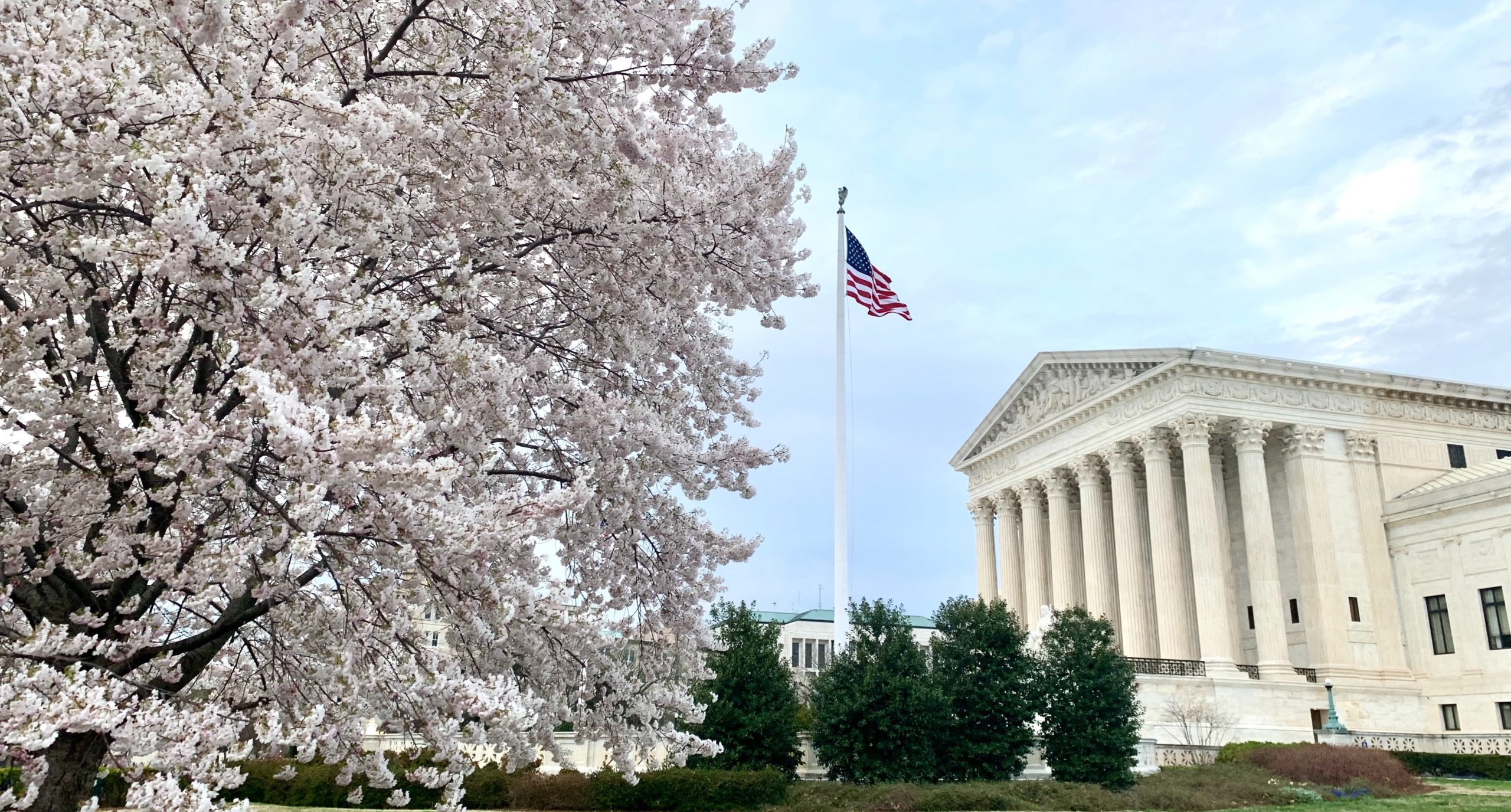With the Supreme Court of the United States beginning to release its first decisions from the October 2022 term, court watchers and advocates don’t have high hopes for outcomes that most people would consider equitable or just.
After former President Trump appointed three deeply conservative Justices and entrenched a conservative majority, for at least the next several decades, many people will be turning to dissenting opinions to see what could have been, or even what could be in the future.
Dissenting opinions aren’t legally binding, but they can have an extraordinary impact on the development of human rights and equality. Justice Scalia used to say that he wrote dissents for the next generation of law students, so they could shape the law into the future. Some of our greatest liberty and equality affirming precedents started as dissents.
For example: in 1896, the Court decided in Plessy v. Ferguson that the 14th Amendment allowed “separate but equal” policies that separated Black and white people. In dissent, Justice John Marshall Harlan wrote that the Constitution doesn’t recognize that sort of caste system where one person’s race or color is better than another person’s. In 1954, the Court unanimously vindicated his dissent in Brown v. Board of Education, in which they held that “separate but equal” education isn’t equal.
In 1986, the Court held in Bowers v. Hardwick that same-sex intimacy could be criminalized even in the privacy of one’s own home. Several Justices wrote dissents in that case, including Justice Stevens who wrote that “the fact that the governing majority in a State has traditionally viewed a particular practice as immoral is not a sufficient reason for upholding a law prohibiting the practice; neither history nor tradition could save a law prohibiting miscegenation from constitutional attack.” He noted that the Court’s previous decisions have protected certain rights, like the right to raise a family and make certain personal decisions, saying the Court “referred to such decisions as implicating ‘basic values,’ as being ‘fundamental,’ and as being dignified by history and tradition.” In 2003, in Lawrence v. Texas, the Court formally adopted Justice Stevens’ dissent in Justice Kennedy’s majority opinion striking down laws banning same-sex intimacy.
If you’re interested in reading more about impactful dissents that paved the way for progress, check out the following links: Ginsburg in Shelby County v Holder, Sotomayor in Utah v. Strieff, Ginsburg’s in Ledbetter v. Goodyear Tire & Rubber Co., and Sotomayor dissent in Schuette v. BAMN.
Dissenting opinions don’t just affect future Constitutional rulings, they also affect current or future legislation.
There are cases in the current term that, if decided a certain way, will fundamentally alter our elections, college admissions, discrimination towards the LGBTQ+ community, and so much more, in undemocratic and inequitable ways that will make positive change harder. These cases will be as monumentally important as the others that have led to great dissents. LGBTQ folks, BIPOC communities, and women have been fighting these battles both inside and outside the courtroom for generations, but there’s still much more progress to be made. We must remember our history and the lessons it teaches us, and we must remember that these issues will continue to be challenged and fought in legislatures, in the streets, and in the courts. The work done outside the court system has led to many of these changes, and these dissents have allowed it to take on new life even in the midst of a Court that is not working for the people.
Regardless of how these cases unfold, we must stay engaged. Democracy requires us to be active participants even, or especially, when things get tough.


